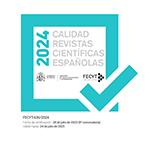EVAAN: An empirical verification argument against naturalism
Abstract
Alvin Plantinga’s evolutionary argument against naturalism (EAAN) claims that if both naturalism (N) and evolutionary theory (E) are true, then all our beliefs are unreliable (premiss 1). Consequently, given N&E, the belief in N&E is unreliable (premiss 2) and N&E is self-defeating (conclusion). My empirical verification argument against naturalism (EVAAN) is more cautious and improves Plantinga’s EAAN by withstanding a rejoinder of the evolutionary naturalist to premiss 1. EVAAN claims that metaphysical beliefs are unreliable, given N&E (premiss 1a). This anticipates the evolutionary naturalist’s claim that empirical verification plays a crucial role in peer assessments and sexual selection of intelligence, and that, therefore, N&E makes empirically verifiable beliefs often reliable (premiss-1 rejoinder). However, even then it can be argued that the belief in N&E is unreliable, given N&E (premiss 2), because N&E is metaphysical (premiss 1b) and therefore not empirically verifiable. My EVAAN distinguishes reliably verifiable intelligence from metaphysical intelligence and claims that, if N&E is true, humans are lacking metaphysical intelligence. This paper also contains an argument against Plantinga’s EAAN, by supporting the premiss-1 rejoinder.
Downloads
Article download
License
In order to support the global exchange of knowledge, the journal Logos. Anales del Seminario de Metafísica is allowing unrestricted access to its content as from its publication in this electronic edition, and as such it is an open-access journal. The originals published in this journal are the property of the Complutense University of Madrid and any reproduction thereof in full or in part must cite the source. All content is distributed under a Creative Commons Attribution 4.0 use and distribution licence (CC BY 4.0). This circumstance must be expressly stated in these terms where necessary. You can view the summary and the complete legal text of the licence.











